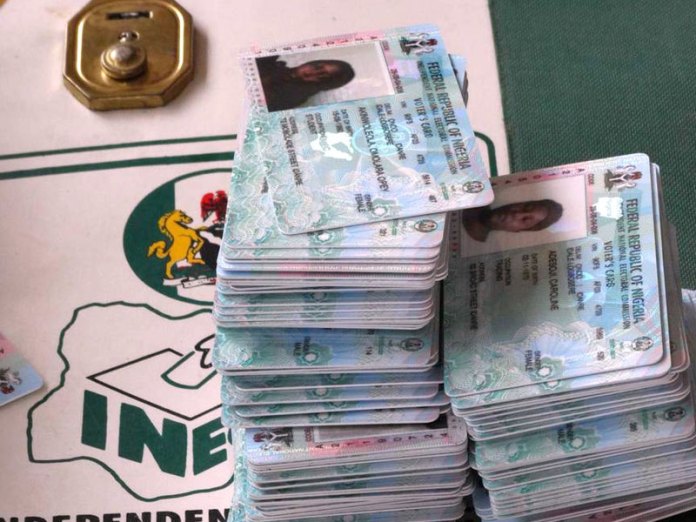- INEC Begins Voter Registration, Distribution of 7.8 Million PVCs
The Chairman, Independent National Electoral Commission, Prof. Mahmud Yakubu, has reaffirmed that Continuous Voter Registration will begin across the country in April.
Yakubu said this at the commission’s first quarterly consultative meeting with the media in Abuja on Monday.
Yakubu said during the exercise, efforts would be made to ascertain dead persons on the voter register and eliminate them, adding that cases of transfers of voting points would also be handled.
He said, “Election is essentially based on a number of parameters. After the 2015 general elections, we are compelled to see if we can clean up the voter register. For instance, we have to remove the names of the deceased from the register.
“But this is easier said than done because sometimes, you may know that the person is dead but the process of removing the name from the system is not that simple.
“This is simply because in some cases we receive report that candidates involve in an election had died only for them to turn up at the commission few days later to say it is a lie that they are dead.
“With 70 million registered voters at the moment, and by the time we do the Continuous Voter Registration, fixed for April, the number will definitely be higher.”
He stated that it was imperative for the commission to clean up the voter register ahead of the 2019 elections to ensure that Nigerians, who were of age and those who did not register in 2015, were registered.
Yakubu added that INEC had not distributed a total of 7.8 million Permanent Voter Cards, which were used for the 2015 general elections.
He stated that the commission had only been able to distribute over 700,000 PVCs since 2015.
He said the leadership of the commission had directed the resident electoral commissioners and the administrative secretaries to commence the immediate distribution of the uncollected PVCs in the states.
He said, “We need to have continuous voter registration, to register Nigerians who are of age and those who did not register in 2015.
“About 7.8 million PVCs are uncollected from the last general elections. We have done an audit of all uncollected PVCs and in one of our meetings with RECs and administrative secretaries, we gave them instructions to begin to distribute them.”
According to him, the members of staff of the commission will carry out the exercise in a way that the PVCs will get to the owners.
“But that would be handled by our own members of staff in a manner that they all get to their owners. So far, we have been able to distribute a little over 700,000, which is under one million registered voters. We need more education and voter enlightenment to accomplish this,” he added.
Yakubu said apart from the challenge of underage voters in the country, the commission was also contending with underage candidates or contestants.
He stated, “Let me also say that until recently, when I came on board, I didn’t know that there are also underage candidates.
“You know that the constitution is clear that you have to be at least 30 years to contest election to a federal or state constituency. In one of the states, somebody, who was less than 30, contested and lo and behold, he won.”
“The runner-up rushed to the tribunal and lodged a case. A year later after the pronouncement by the tribunal, the person went to a regular court and made a case that he was not of age.”
The INEC chairman said the commission was planning to conduct 1,560 elections in 2019.


 Forex3 weeks ago
Forex3 weeks ago
 Naira3 weeks ago
Naira3 weeks ago
 Billionaire Watch3 weeks ago
Billionaire Watch3 weeks ago



 Naira3 weeks ago
Naira3 weeks ago






 Naira3 weeks ago
Naira3 weeks ago




 Naira2 weeks ago
Naira2 weeks ago






 Naira2 weeks ago
Naira2 weeks ago




 Naira4 weeks ago
Naira4 weeks ago























